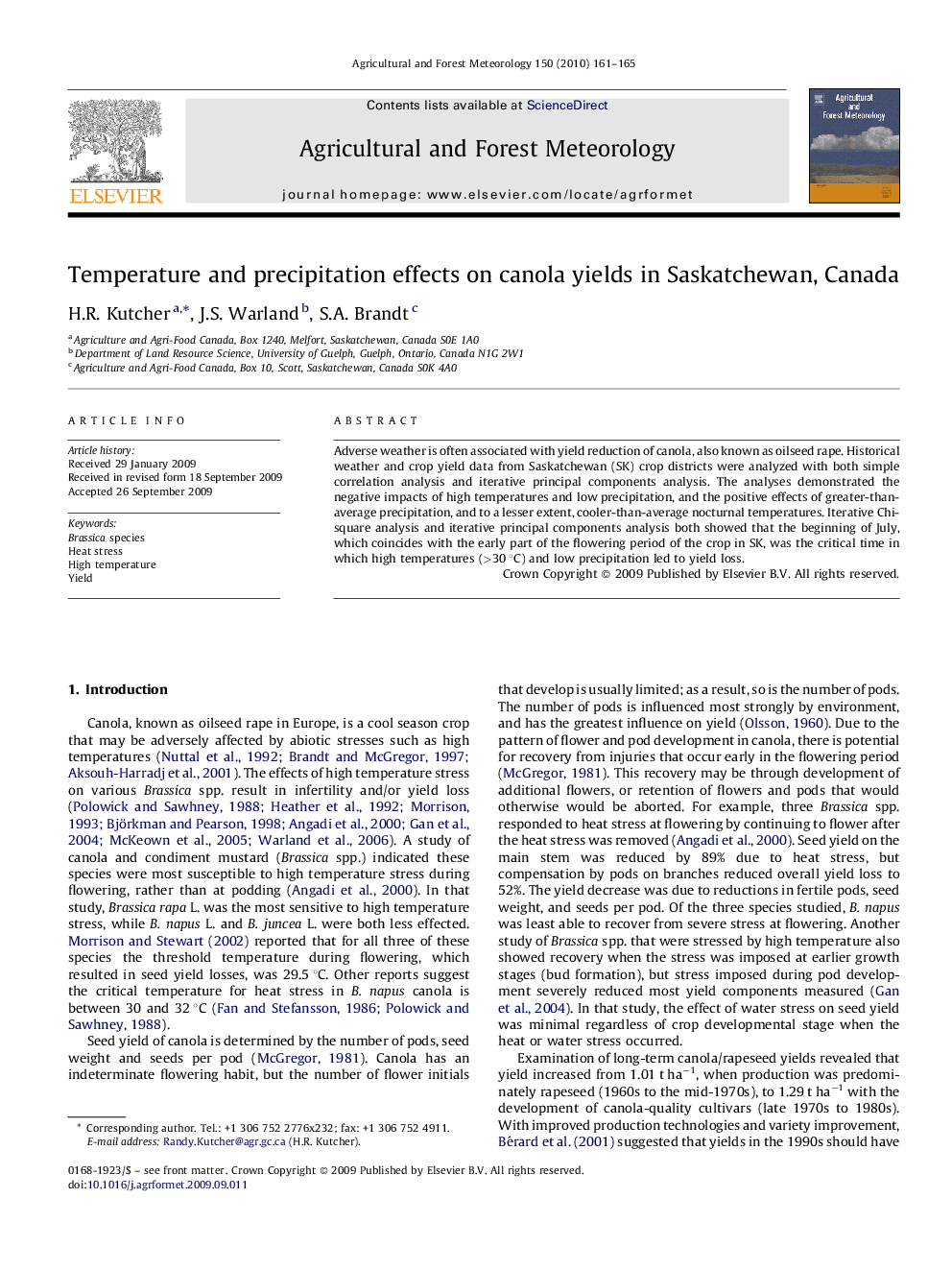| Article ID | Journal | Published Year | Pages | File Type |
|---|---|---|---|---|
| 82384 | Agricultural and Forest Meteorology | 2010 | 5 Pages |
Adverse weather is often associated with yield reduction of canola, also known as oilseed rape. Historical weather and crop yield data from Saskatchewan (SK) crop districts were analyzed with both simple correlation analysis and iterative principal components analysis. The analyses demonstrated the negative impacts of high temperatures and low precipitation, and the positive effects of greater-than-average precipitation, and to a lesser extent, cooler-than-average nocturnal temperatures. Iterative Chi-square analysis and iterative principal components analysis both showed that the beginning of July, which coincides with the early part of the flowering period of the crop in SK, was the critical time in which high temperatures (>30 °C) and low precipitation led to yield loss.
